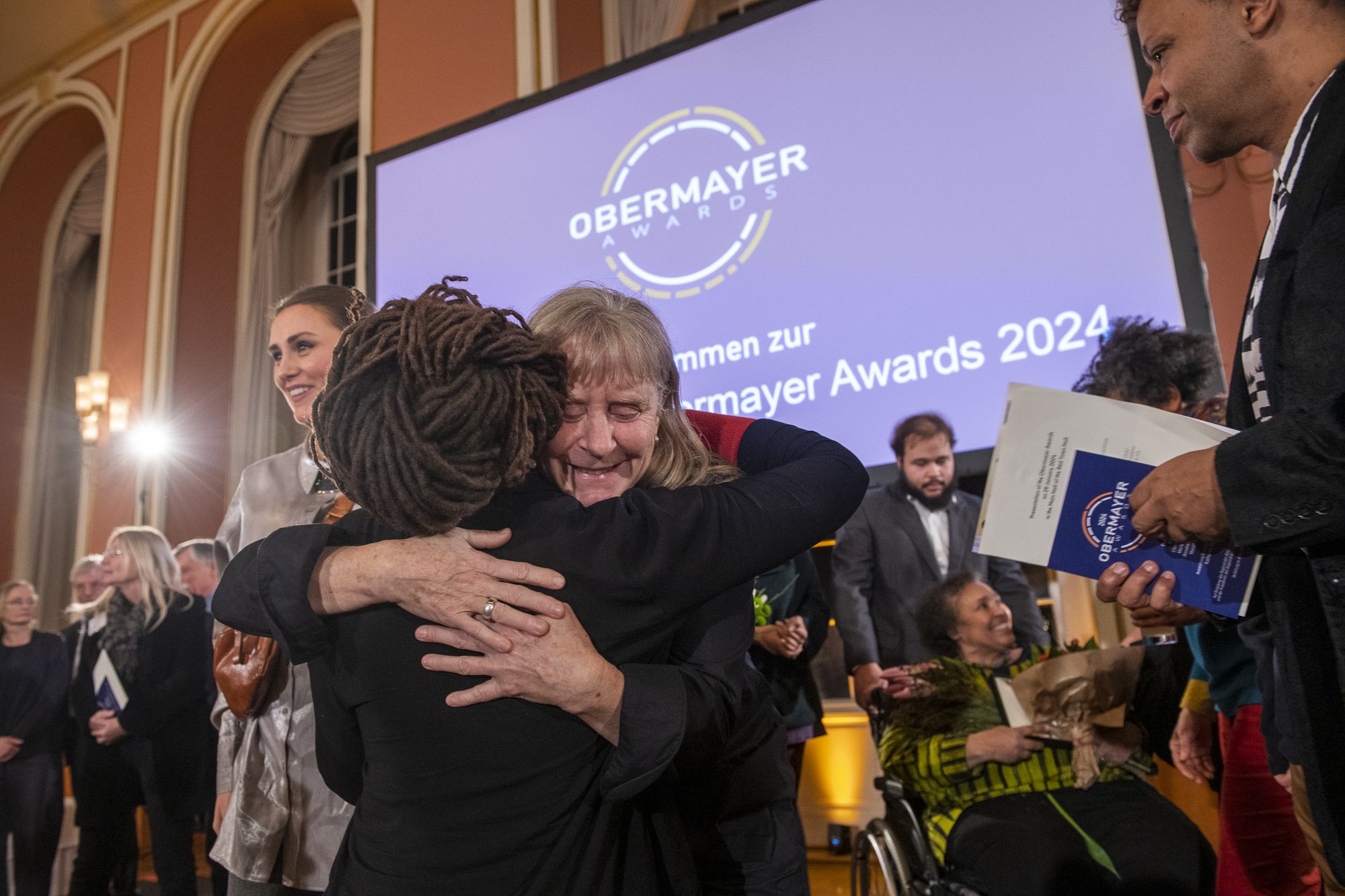The Obermayer Awards
For 25 years, the Obermayer Awards have honored people and organizations in Germany that have worked creatively and selflessly to raise awareness of Jewish history and culture in their communities, and to fight the rise of hate, prejudice, and antisemitism. Award recipients have included teachers and engineers, publishers and judges, artists and bankers, lawyers and business executives, and they come from every corner of the country. They have worked toward real reconciliation in their own communities, forging meaningful relationships with former residents and their descendants while also making it possible to teach the lessons of history to new generations.
Obermayer Awards 2025
The 2025 Obermayer Awards were presented on January 27, 2025 at Berlin’s historic Red Town Hall, in a ceremony hosted by the Governing Mayor of Berlin, Kai Wegner, and the President of the Berlin Parliament, Cornelia Seibeld. The annual ceremony is a prominent official highlight of the observance of international Holocaust Remembrance Day in Germany’s capital. Meet the 2025 winners here.
Meet the Jury
The jury for the Obermayer Awards includes experts in the fields of remembrance, Jewish-German history, human rights, and social justice.
A Brief History of the Obermayer Awards
The story begins when Arthur Obermayer, a Jewish American entrepreneur decided to travel to Germany to trace his roots. What he discovered astounded him.
See Every Obermayer Award Winner
Read profiles of each Obermayer Award recipient since 2000. They come from a wide range of occupations and from every region of Germany.







